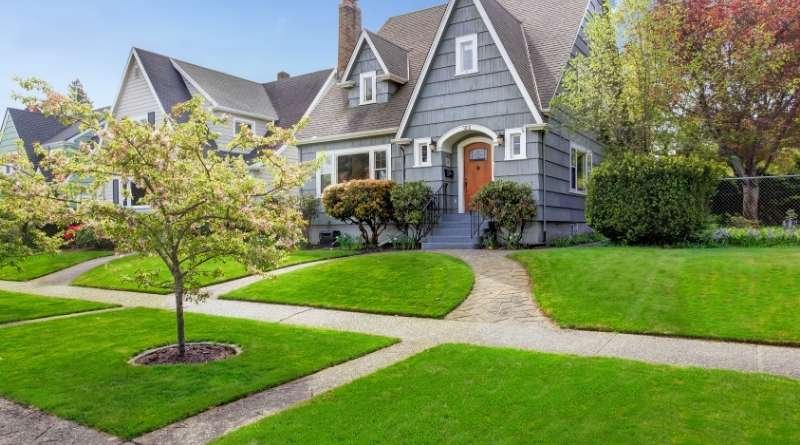Choosing the best fence for your home can feel overwhelming, especially with so many options available. A fence isn’t just about marking boundaries; it plays a vital role in providing privacy, enhancing security, and adding aesthetic appeal to your property. So, how do you determine the best type of fence for your needs? Here’s a breakdown of some popular fencing materials, along with their pros and cons, to help you make an informed decision.
Wood Fencing
Wood fences are a timeless choice, popular for their natural beauty and versatility. Whether you’re looking for a traditional picket style or a tall privacy fence, wood offers endless possibilities.
Pros:
Customizable: You can choose the height, color, and design to match your style.
Natural Appeal: Wood blends seamlessly into most landscapes, creating a warm and welcoming look.
Privacy: Solid wood panels can provide excellent privacy.
Cons:
Maintenance: Regular staining or sealing is required to protect against weather and pests.
Lifespan: Wood can rot, warp, or crack over time, especially in damp climates.
Vinyl Fencing
Vinyl fencing has gained popularity for its sleek appearance and low-maintenance qualities. It’s a great option for those seeking style without constant upkeep.
Pros:
Low Maintenance: No painting or staining required, and it’s easy to clean with soap and water.
Durable: Resistant to rot, pests, and weather damage.
Design Options: Available in a variety of colors and styles.
Cons:
Cost: The initial cost is higher than wood.
Brittleness: Extreme temperatures can make vinyl brittle over time.
Composite Fencing
Composite fencing is an eco-friendly option made from recycled wood and plastic. It combines the strength of wood with the durability of synthetic materials.
Pros:
Sustainability: Made from recycled materials, it’s an environmentally friendly choice.
Low Maintenance: Resistant to rot, insects, and weathering.
Privacy: Solid panels offer excellent coverage.
Cons:
Cost: Like vinyl, composite fencing comes with a higher upfront cost.
Limited Styles: While durable, composite fences have fewer design options than wood or vinyl.
Aluminum Fencing
For a modern, elegant look, aluminum fencing is a top choice. It’s especially popular for properties with pools or scenic views.
Pros:
Rust-Resistant: Ideal for humid or coastal areas.
Low Maintenance: Requires minimal upkeep and doesn’t need painting.
Aesthetic Appeal: Offers a sleek, sophisticated look.
Cons:
Privacy: Aluminum fences typically have open designs, providing little to no privacy.
Security: They’re not as sturdy as other materials for preventing intrusions.
Chain-Link Fencing
Chain-link fences are a budget-friendly and practical solution, commonly used for large spaces or commercial properties.
Pros:
Cost-Effective: Affordable for large areas.
Durable: Withstands weather and wear.
Low Maintenance: Requires little upkeep.
Cons:
Aesthetic Appeal: Less visually pleasing than other options.
Privacy: Offers no coverage unless paired with slats or vines.
Wrought Iron Fencing
For those who value durability and ornate designs, wrought iron fencing stands out as a luxurious option.
Pros:
Strong and Secure: Provides excellent protection.
Decorative: Adds elegance and charm to any property.
Long-Lasting: Can last for decades with proper maintenance.
Cons:
Maintenance: Requires regular painting to prevent rust.
Cost: One of the more expensive fencing materials.
Factors to Consider When Choosing a Fence
When deciding on the best fence for your property, take the following into account:
- Purpose: Do you need privacy, security, or simply aesthetic appeal? Understanding your primary goal will narrow your options.
- Budget: Some materials, like chain-link or wood, are more affordable upfront, while others, like vinyl or composite, may save money in the long run due to low maintenance.
- Climate: Choose a material that can withstand your local weather conditions. For example, aluminum and vinyl perform well in humid or coastal areas.
- Maintenance: Consider how much time and effort you’re willing to invest in upkeep.
Final Thoughts
The best type of fence ultimately depends on your needs, budget, and style preferences. For a classic, natural look, wood is an excellent choice. If you want something low-maintenance, vinyl or composite might be better options. For security with elegance, wrought iron or aluminum can be ideal. Whatever you choose, a well-installed fence can enhance the value, functionality, and beauty of your property.
